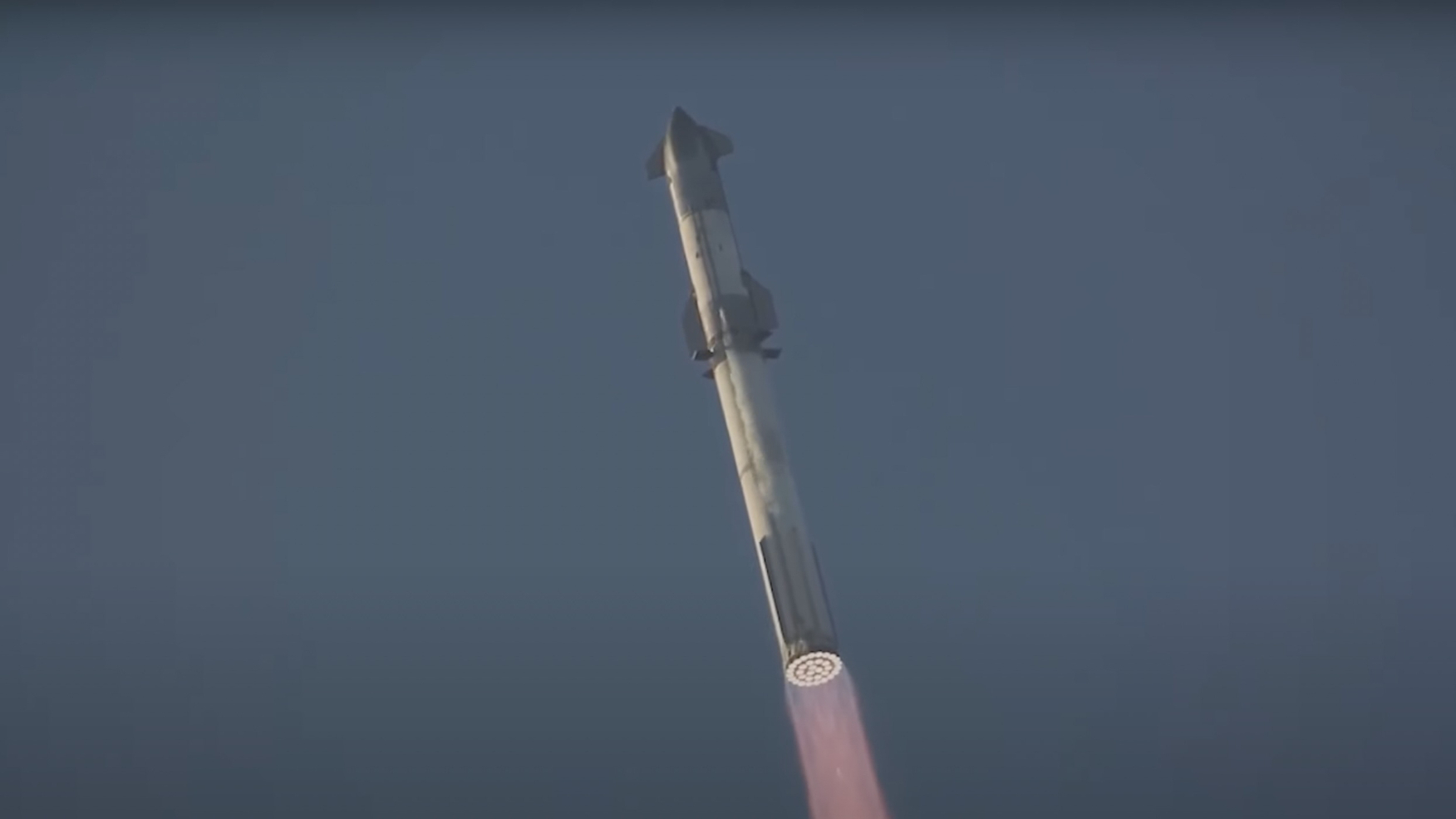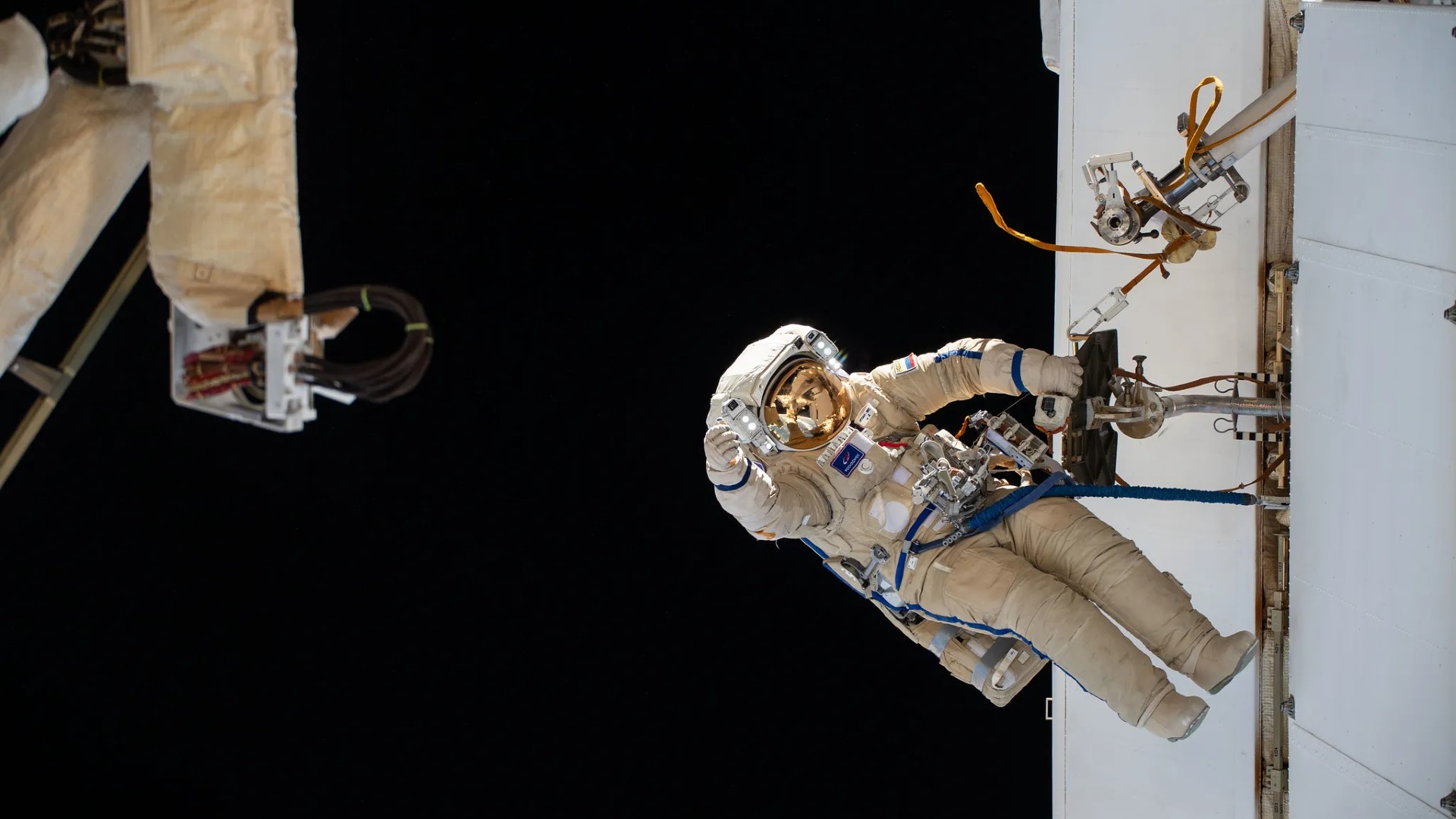Relive SpaceX Starship's epic 2nd test flight in newly released NASA footage (video)
Breaking space news, the latest updates on rocket launches, skywatching events and more!
You are now subscribed
Your newsletter sign-up was successful
Want to add more newsletters?

Delivered daily
Daily Newsletter
Breaking space news, the latest updates on rocket launches, skywatching events and more!

Once a month
Watch This Space
Sign up to our monthly entertainment newsletter to keep up with all our coverage of the latest sci-fi and space movies, tv shows, games and books.

Once a week
Night Sky This Week
Discover this week's must-see night sky events, moon phases, and stunning astrophotos. Sign up for our skywatching newsletter and explore the universe with us!

Twice a month
Strange New Words
Space.com's Sci-Fi Reader's Club. Read a sci-fi short story every month and join a virtual community of fellow science fiction fans!
Like much of the world, NASA watched the second test flight of SpaceX's huge Starship rocket closely — and we can now see what the agency saw.
That flight lifted off on Nov. 18, 2023, sending the two-stage Starship aloft from Starbase, SpaceX's site on Texas' Gulf Coast. It ended eight minutes later, when Starship's 165-foot-tall (50 meters) upper stage exploded high in the sky.
But the giant vehicle notched some important milestones that day, SpaceX founder and CEO Elon Musk has stressed. For example, the 33 Raptor engines on its first-stage booster, known as Super Heavy, executed their 2.5-minute burn pretty much flawlessly. Starship's two stages separated on time as well, something that didn't happen on the first-ever flight, which launched on April 20 of last year.
Related: See stunning photos and video of Starship's 2nd launch
You can get new views of the 400-foot-tall (122 m) Starship's flight in the NASA footage, which the agency recently released via its FOIA (Freedom of Information Act) library.
Some of the video comes from cameras aboard WB-57 jets, long-range aircraft that are capable of flying to altitudes of 60,000 feet (18,300 m) or more. Unfortunately, the footage doesn't show stage separation, or provide good looks at Starship's explosive end.
NASA's interest in the test flight should not come as a surprise. The agency has a lot invested in Starship, selecting it as the first crewed lunar lander for its Artemis program of moon exploration. If all goes according to plan, Starship will carry astronauts to and from the lunar surface for the first time in 2026, on the Artemis 3 mission.
Breaking space news, the latest updates on rocket launches, skywatching events and more!
We'll see a third Starship flight test soon, if all goes according to plan. SpaceX representatives have said they'll be ready to launch the giant rocket again this month, provided they get a license from the U.S. Federal Aviation Administration (FAA) in time.
It's unclear if that will happen, however; the FAA is still overseeing an investigation into what happened on the second flight, which ended in the detonation of both the first and second stages.

Michael Wall is a Senior Space Writer with Space.com and joined the team in 2010. He primarily covers exoplanets, spaceflight and military space, but has been known to dabble in the space art beat. His book about the search for alien life, "Out There," was published on Nov. 13, 2018. Before becoming a science writer, Michael worked as a herpetologist and wildlife biologist. He has a Ph.D. in evolutionary biology from the University of Sydney, Australia, a bachelor's degree from the University of Arizona, and a graduate certificate in science writing from the University of California, Santa Cruz. To find out what his latest project is, you can follow Michael on Twitter.

